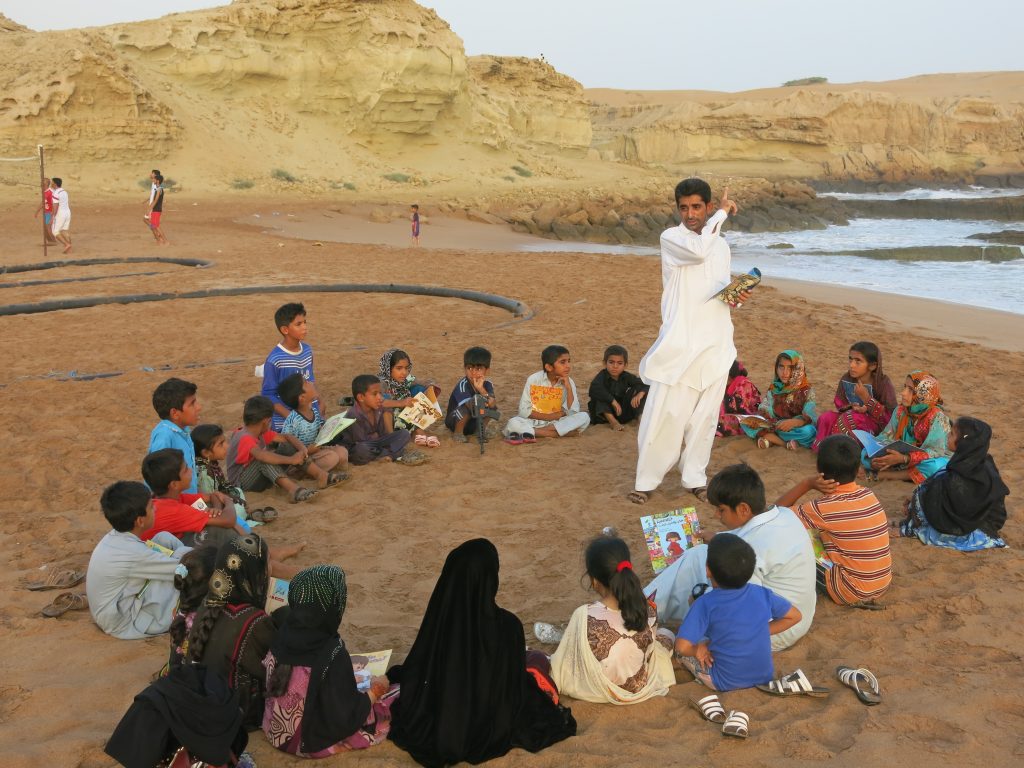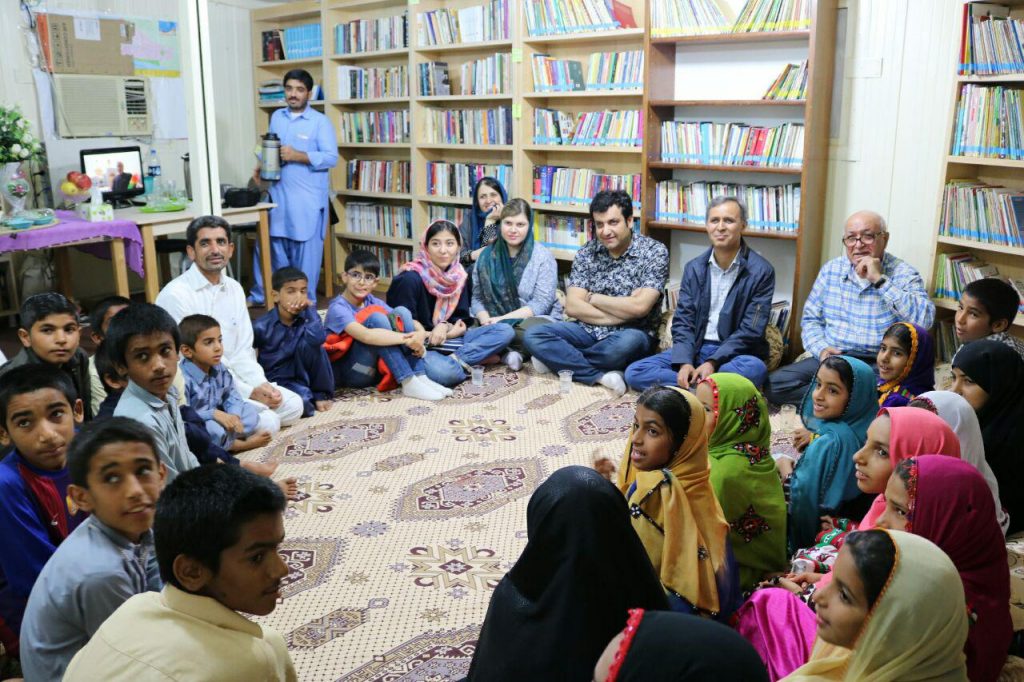The Iranian Festival for Bibliophile Villages and Tribal Clans is an annual event for nomination of ten Villages as Bibliophile Villages of Iran. It is a program launched jointly by a variety of different stakeholders including official and civil organization as well as NGOs and private sectors. In order to participate in the festival, the villages are required to present both their past and present capacities and achievements as well as their plans for development of reading initiatives and facilities within the village.
History
After introduction of Iranian Capital for Books, the empty space of doing some actions for villages and rural areas was more evident. Again with the suggestion of Mr. Ali Asghar Seidabadi, a special program was designed where villages could introduce their special capacities and launch new programs to develop it.
Since the early introduction in 2014, in four years, four called were made and a significant number of villages answered and applied for the title.
In the first year, about 620 villages participated in the festival and this increased to 1300 villages in the fourth year. The profile of each village, including reports on their past achievements and activities and documents on their future plans, undergoes a series of assessments and evaluations. Finally 20 villages are introduced as the candidates and then only 10 villages and tribal clans are designated as Bibliophile Villages.
Objectives
- Development of infrastructures and activities at the rural level for promotion of reading
- Provision of a field for collaboration between public and private stakeholders as well as NGOs and independent reading activists
- Allocation of public and private capitals and resources for promotion of reading and books
- Indirect promotion of future orientation and middle and long term planning at local level
- Supporting new and innovative ideas for reading promotion
- Decentralization and turning toward planning at the local level
- Design and implementation of attractive and popular programs for reading promotion

Partner organizations
- UNESCO National Commission
- The national organization for municipalities and rural management
- The institute for public libraries
- Scientific association for library and informatics
- Association of writers for children and young adults
- The union for publishers and booksellers
- Ministry of Culture
- President’s Deputy for development of rural and underprivileged areas
- Network of Bibliophile Villages
Executive Procedures
The festival is the result of joint efforts by a variety of stakeholders from public and private sectors in rural settings and for the promotion of reading and development of related capacities. In order to participate in the event, the villages are required to provide reports and documents on their past achievements as well as their plans for future activities. These reports should be signed by local authorities and the head of village council and posted to the general secretariat office of the festival in Tehran.
There are two broad categories for the activities and initiatives of every village:
- Infrastructural activities such as building and equipment of libraries, allocation of land for such purposes and other construction affairs
- Promotional activities such as reading contests, book fairs, festivals, inviting writers, and any other activity for the promotion of books and reading culture.
According to this, every village will submit a profile. Then the secretariat and the consultative body will evaluate the past activities and future plans in two distinct phases and eventually decide on the name of candidates and the final list of bibliophile villages.
Impacts
The festival has not only affected reading rate in villages and rural societies, but also it has shown significant social outcomes. Reading has actually served as an axis for social coherence and harmony. There is a meaningful change in the general image of the village. State authorities and business people who hardly step into the village are seen several times during campaigns and ceremonies. Village council members find new and more fundamental infrastructures to build for the people, an infrastructure that empowers the people to think and to talk and to build even more.
Also, the people find new contents and subjects to fill in their newly discovered social media; they can even talk about their experiences of collective reading to other people all over the country and globe. Geographical barriers have already been shattered, now is the time to find new languages and subjects for expression. Village kids find and follow their favorite authors in social media.
Whatever is done in the name of books and reading in these villages certainly goes far beyond the activity of reading promotion, reading in these villages acts as a social institution. It is a space and a device for the wider presence of women in social affairs.

Social Impacts
Considering the fact that in the past, much has not been done in a planned and coherent manner for reading promotion in villages, this event has been welcomed by the villagers and has been widely reflected in rural settings.
Official media including national radio and TV channels widely cover reading events and communities, regional and national newspapers and magazines allocate new columns to reading events, making room for further development of the project.
0 Comments